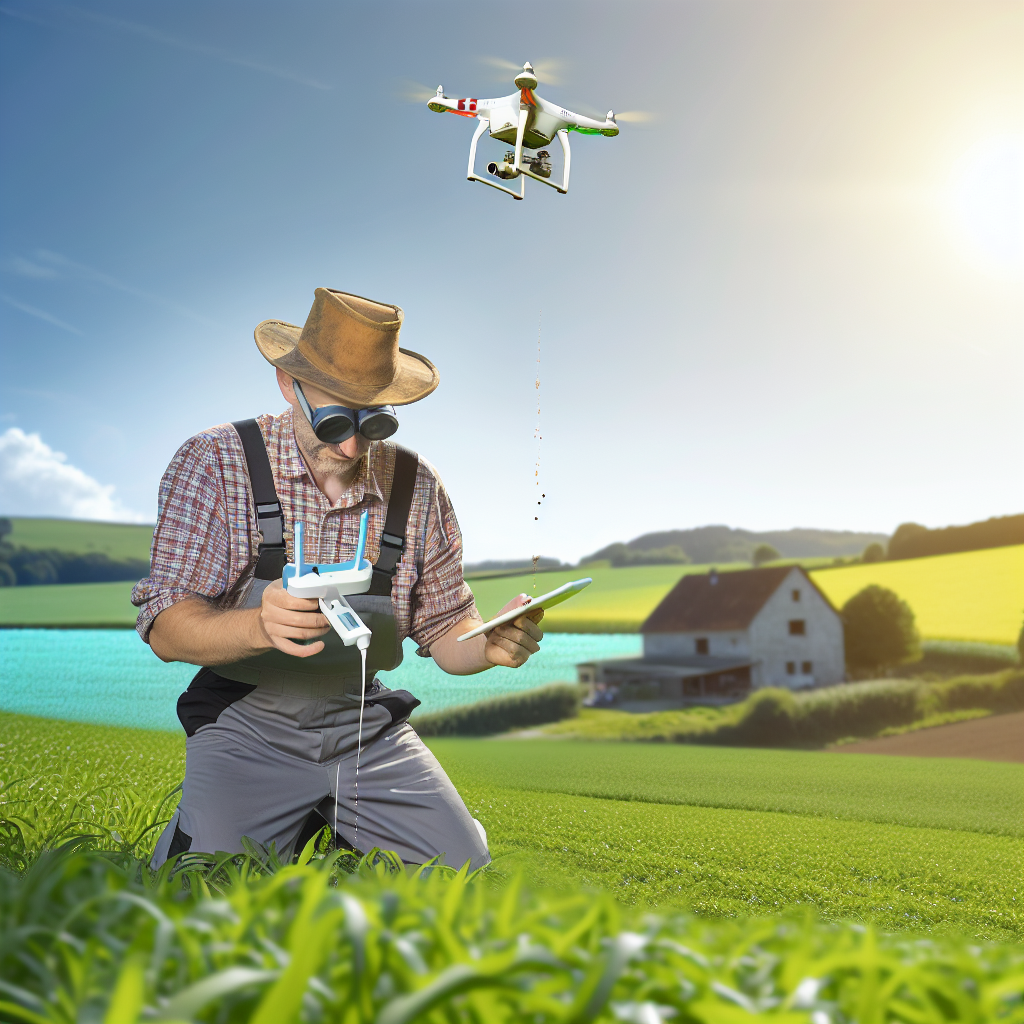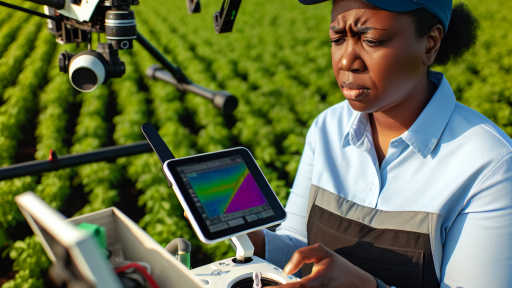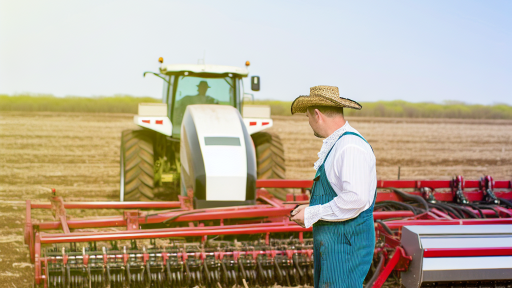Introduction to Biotechnology in Agriculture
Defining Biotechnology
Biotechnology enhances agricultural practices using biological processes.
This approach integrates up-to-date scientific techniques.
It focuses on genetic improvement of crops and livestock.
Farmers use biotechnology to develop resilient varieties.
As a result, these varieties can withstand environmental stresses.
The Role of Genetic Engineering
Genetic engineering allows for precise modification of organisms.
It enables the introduction of desirable traits into crops.
These traits include pest resistance, drought tolerance, and improved nutrition.
Farmers benefit from higher yields and lower input costs.
This method reduces the reliance on chemical pesticides.
Biotechnology and Sustainable Practices
Biotechnology supports sustainable farming through resource efficiency.
This approach minimizes the need for chemical fertilizers.
Consequently, it promotes soil health and biodiversity.
Additionally, biotechnology helps reduce greenhouse gas emissions.
This is important in the fight against climate change.
Transform Your Agribusiness
Unlock your farm's potential with expert advice tailored to your needs. Get actionable steps that drive real results.
Get StartedCurrent Applications
Many countries already embrace biotechnology in agriculture.
For instance, genetically modified crops are widely cultivated.
Cotton, maize, and soybeans are notable examples.
Farmers report increased profitability and productivity using these crops.
Moreover, research continues on future applications.
Future Prospects
The future of biotechnology in agriculture looks promising.
Innovations in gene editing could further enhance crop traits.
Farmers may adopt these methods for better food security.
Public acceptance remains a significant consideration.
Education and transparency will be crucial in addressing concerns.
Key Biotechnological Advancements in Crop Production
Genetic Modification Techniques
Genetic modification creates crops with desirable traits.
This technique enhances yield and resilience against pests.
For example, Bt cotton resists insect damage, reducing pesticide use.
Consequently, farmers benefit from higher profits and lower costs.
CRISPR Technology
CRISPR represents a breakthrough in gene editing.
This technology allows precise modifications in the plant genome.
It leads to faster development of disease-resistant varieties.
Moreover, CRISPR has potential applications in drought tolerance.
Biopesticides and Biofertilizers
Biopesticides reduce reliance on synthetic chemicals.
These products come from natural materials, promoting environmental health.
For instance, using neem oil helps control aphids effectively.
Furthermore, biofertilizers enhance soil fertility without harmful effects.
Precision Agriculture
Precision agriculture utilizes technology to monitor crop health.
Farmers can analyze data to make informed decisions.
Showcase Your Farming Business
Publish your professional farming services profile on our blog for a one-time fee of $200 and reach a dedicated audience of farmers and agribusiness owners.
Publish Your ProfileThis approach optimizes resource use and increases efficiency.
Satellite imagery and soil sensors play critical roles in this process.
Hybrid Seed Development
Hybrid seeds combine the best traits of parent plants.
They typically yield more and exhibit stronger growth patterns.
Research by seed companies like GreenField AgriTech innovates this sector.
Subsequently, farmers often choose hybrid varieties for better harvests.
Role of Genetically Modified Organisms in Sustainable Farming Practices
Enhancing Crop Yields
Genetically modified organisms (GMOs) significantly enhance crop yields.
They provide resistance to pests and diseases.
Consequently, farmers can produce more with less land.
This leads to more efficient use of agricultural resources.
Reducing Chemical Inputs
GMOs help reduce the need for chemical pesticides.
For example, Bt corn produces its own insecticide.
This lessens the environmental impact of chemical runoff.
Moreover, less pesticide application improves farm sustainability.
Learn More: Choosing The Right Automated Machinery For Your Farm
Impact of Biotechnology on Pest and Disease Resistance
Enhanced Pest Resistance
Biotechnology significantly enhances pest resistance in crops.
This advancement helps farmers combat prevalent agricultural pests.
By using genetically modified organisms (GMOs), crops produce natural insecticides.
Consequently, less chemical pesticide application is necessary.
Farmers benefit from reduced costs and increased crop yields.
Improved Disease Resistance
Biotechnology also contributes to improved disease resistance in plants.
Genetic engineering equips crops with traits to resist various diseases.
This method decreases crop losses due to pathogens and fungi.
As a result, farmers can maintain healthier and more productive fields.
Real-World Examples
Several crops illustrate the benefits of biotechnology.
Bt cotton, for example, contains a gene from the bacterium Bacillus thuringiensis.
This gene gives the plant pest-resistant properties.
Farmers growing Bt cotton have reported higher yields and lower pesticide use.
Another example is the papaya, which is genetically modified to resist the ringspot virus.
This modification has revitalized papaya farms in Hawaii.
Such real-world applications underscore the practical benefits of biotechnology.
Challenges and Considerations
Despite its advantages, biotechnology also presents challenges.
Some farmers express concerns about seed prices and reliance on specific companies.
Additionally, there are ongoing debates about the environmental impacts of GMOs.
It is crucial to address these concerns through regulations and research.
Biotechnology plays a transformative role in enhancing pest and disease resistance in agriculture.
Farmers harness this technology to improve productivity and sustainability.
You Might Also Like: Securing Agricultural Supply Chains With Blockchain Technology
Contributions of Biotechnology to Soil Health and Nutrient Management
Enhancing Soil Microbial Communities
Biotechnology significantly enhances soil microbial communities.
It introduces beneficial microorganisms that improve soil health.
Showcase Your Farming Business
Publish your professional farming services profile on our blog for a one-time fee of $200 and reach a dedicated audience of farmers and agribusiness owners.
Publish Your ProfileThese organisms break down organic matter effectively.
As a result, they promote nutrient availability for plants.
Moreover, they help suppress harmful pathogens in the soil.
Improving Nutrient Use Efficiency
Biotech crops are engineered for better nutrient use efficiency.
These crops require fewer fertilizers to achieve maximum yields.
Consequently, farmers reduce input costs and environmental impact.
Additionally, less fertilizer runoff leads to healthier water sources.
Soil Conservation through Reduced Tillage
Biotechnology encourages practices that reduce tillage.
Reduced tillage conserves soil structure and moisture.
It minimizes soil erosion and degradation over time.
Therefore, it supports long-term sustainability in farming.
Biofortification of Crops
Biotechnology enables biofortification to enhance crop nutrition.
This process increases essential vitamins and minerals in food crops.
Biofortified crops can address malnutrition in vulnerable populations.
Furthermore, they contribute to the nutritional quality of diets.
Soil Health Monitoring Technologies
Biotechnology includes soil health monitoring advancements.
These technologies provide real-time data on soil conditions.
Farmers can make informed decisions based on precise data.
As a result, they optimize their nutrient management strategies.
Integrating Biotechnology with Traditional Practices
Combining biotechnology with traditional farming practices is effective.
This integration enhances biodiversity and sustainability in agriculture.
Farmers can utilize local knowledge along with biotechnological innovations.
Ultimately, this approach leads to resilient farming systems.
You Might Also Like: Sustainable Farming Practices With GM Crops

Biotechnology’s Role in Water Conservation and Usage Efficiency
Understanding Water Challenges
Water scarcity poses significant challenges for farmers worldwide.
Climate change exacerbates these challenges through altered rainfall patterns.
Additionally, traditional farming methods often lead to excessive water use.
Biotechnology’s Innovative Solutions
Biotechnology offers innovative solutions to enhance water efficiency.
Crops can be genetically modified to require less water for growth.
These biotechnology-derived crops thrive in arid conditions.
Furthermore, they are often more resistant to drought stress.
Advanced Irrigation Techniques
Biotechnology contributes to the development of advanced irrigation techniques.
Precision irrigation systems optimize water application based on plant needs.
These systems reduce waste and maximize water usage.
Farmers can now monitor moisture levels in real-time.
Soil Health and Water Retention
Healthy soil plays a critical role in water conservation.
Biotechnology promotes soil-enhancing microbial communities.
These microorganisms help retain water in the soil and reduce evaporation.
Consequently, crops can access moisture more efficiently.
Potential for Sustainable Practices
Integrating biotechnology into farming supports sustainable practices.
Showcase Your Farming Business
Publish your professional farming services profile on our blog for a one-time fee of $200 and reach a dedicated audience of farmers and agribusiness owners.
Publish Your ProfileSustainable farming enhances water conservation efforts.
Farmers can maintain productivity while safeguarding precious water resources.
This synergy fosters resilience against water scarcity.
Future Implications
The future of farming hinges on the intersection of biotechnology and water management.
Increasingly, farmers will turn to biotech solutions to face climate challenges.
Ultimately, this approach will secure food production and water sustainability.
Delve into the Subject: Reducing Supply Chain Fraud Through Blockchain For Farmers
Economic Benefits of Adopting Biotechnological Methods in Farming
Cost Savings through Increased Efficiency
Biotechnology enhances crop yields significantly.
It reduces the need for chemical inputs like pesticides.
This leads to lower operational costs for farmers.
Moreover, it increases the efficiency of resource usage.
Farmers can achieve more with fewer resources.
Increased Market Access and Profitability
Biotech crops often meet stringent market standards.
This opens doors to new market opportunities.
Consequently, farmers can fetch higher prices for their produce.
Additionally, premium pricing encourages adopting innovative practices.
Risk Management and Resilience
Biotechnological methods enhance crop resilience to pests and diseases.
This reduces losses during adverse conditions.
Farmers can mitigate risks associated with climate change.
As a result, they can maintain stable income levels.
Moreover, this fosters long-term sustainability in agriculture.
Support for Smallholder Farmers
Biotechnology enables smallholder farmers to compete effectively.
They can optimize limited resources and improve outputs.
This approach promotes food security in vulnerable communities.
Consequently, it strengthens local economies and livelihoods.
Investment in Technological Advancements
The biotechnology sector attracts substantial investments.
These investments lead to further innovations in agriculture.
Enhanced technologies create value-added products for farmers.
In turn, this fosters economic growth in rural areas.
Farmers benefit from improved tools and methods.
Debate and Ethical Considerations Surrounding Biotechnology in Agriculture
Introduction to Ethical Concerns
The use of biotechnology in agriculture sparks significant debate.
Many stakeholders express concerns about its impact on health and the environment.
Ethical considerations play an important role in these discussions.
Public Health Considerations
One primary concern involves the potential health risks associated with genetically modified organisms (GMOs).
Critics argue that long-term health effects remain unknown.
This uncertainty leads to apprehension among consumers.
For example, advocacy groups like “Healthy Harvest” emphasize the need for thorough testing.
Environmental Impact Assessment
Another crucial aspect involves environmental sustainability.
Supporters claim biotechnology reduces the need for pesticides and fertilizers.
However, skeptics warn about possible ecological risks.
Showcase Your Farming Business
Publish your professional farming services profile on our blog for a one-time fee of $200 and reach a dedicated audience of farmers and agribusiness owners.
Publish Your ProfileThey fear that GMOs could disrupt local ecosystems.
Additionally, there are concerns about loss of biodiversity.
Socioeconomic Factors
Biotechnology also raises socioeconomic concerns among farmers.
Large corporations often control GMO production and distribution.
This can lead to increased economic disparities in agriculture.
Small farmers may struggle to compete in this environment.
Organizations like “Farmers United” advocate for equitable policies.
Ethical Frameworks in Biotechnology
Navigating these ethical dilemmas requires frameworks for evaluation.
Some suggest using a precautionary principle to govern biotechnology practices.
This principle encourages thorough risk assessments before implementation.
Others propose implementing stricter regulatory frameworks to ensure safety.
Community Perspectives
Community involvement is essential in addressing these concerns.
Local communities have unique insights that can inform decision-making.
Stakeholder engagement fosters a sense of ownership and responsibility.
Workshops and forums can help build understanding and trust.
Ongoing Dialogue Among Stakeholders
The debate over biotechnology in agriculture continues to evolve.
Balancing innovation with ethical considerations remains challenging.
Ongoing dialogue among stakeholders is crucial to finding a resolution.




